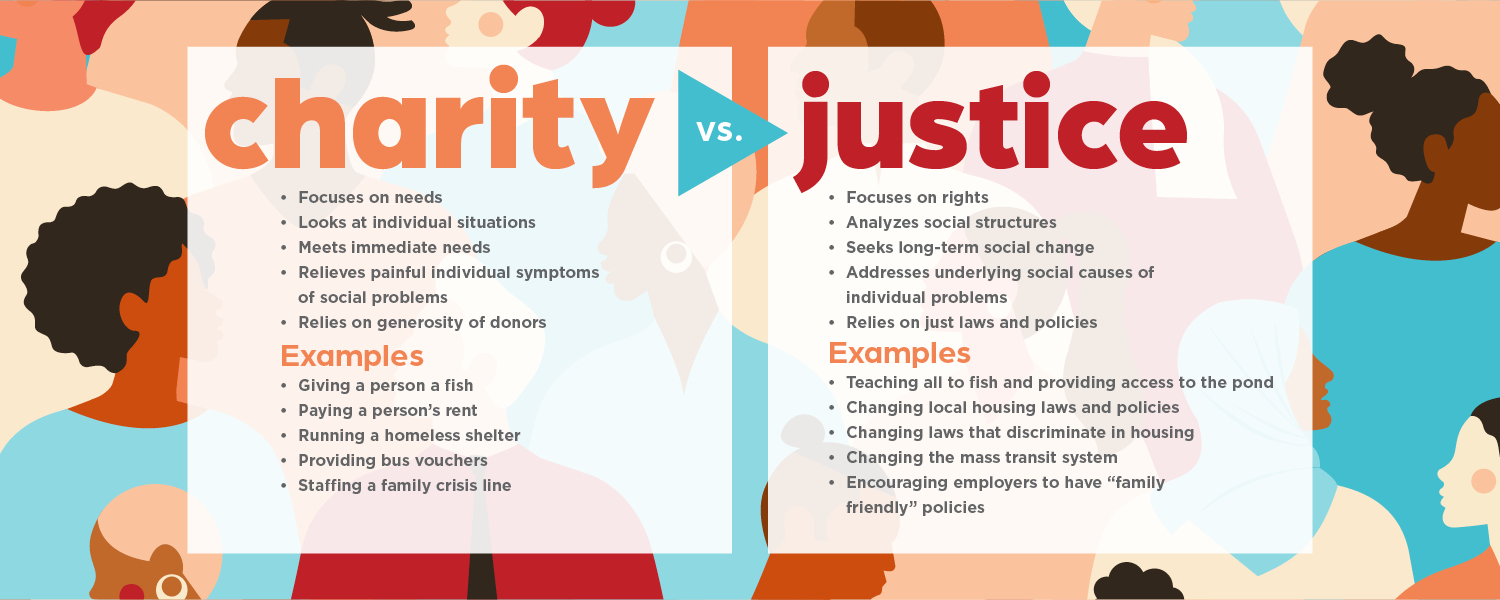ABOUT

A different kind of anti-poverty program
Catholic Campaign for Human Development (CCHD) believes people who experience poverty best understand how to fight it. That’s why CCHD-funded projects empower low-income people to engage and overcome their circumstances by doing the following:
- Voicing problems in their lives, families, and communities
- Identifying and executing solutions
- Training to serve in leadership roles
- Driving projects that work for positive, permanent change
- Advocating for the rights of people in similar situations
CCHD’s approach differs from those of other charitable poverty programs; rather than meet the immediate needs of people who are poor, it takes aim at the reasons why people become and remain poor. The Campaign ultimately works for policy change that addresses flawed procedures and societal structures that perpetuate poverty and impose injustice.
Rooted in Catholic social teaching
CCHD was founded by the U.S. Bishops in 1969, and its mission reflects the principles of Catholic social teaching—particularly that of subsidiarity, which says individuals should be allowed to solve problems when possible, with help from higher authorities, such as the government, provided as needed.
The Campaign also educates schools and parishes about the root causes of poverty.

CCHD Terms
Social Justice: The result when societal systems and structures ensure that people who are disadvantaged have opportunities to develop and succeed.
Empowerment: Ensuring power to people who lack money and connections, done for love of one’s neighbor and to ensure the voices of all people are heard.
Institutional Change: The result of efforts to address the injustice of poverty by changing the ingrained attitudes and flawed systems, laws, and institutions that perpetuate it.
Catholic social teaching: The Church’s teaching on building a just society and living holy lives, articulated through written traditions from popes, bishops, and councils and summarized here.
Human Development: The natural and authentic evolution of every person encouraged by the Catholic Church as a matter of dignity and too often impeded by poverty.
